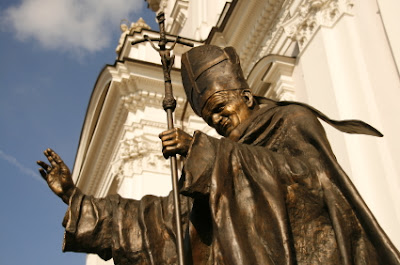Of late, nuclear power opponents hold up Japan
No wonder, then, that the Catholic Bishops Conference of the Philippines Rome
But the nuclear question remains: to build or not to build?
There is no easy answer. Every human invention comes at a price. Oil- and coal-powered energy production and transportation emits greenhouse gases and pollutes water. Wind power irritates anyone living nearby. Hydroelectric power alters the flow of water both upstream and down. Solar energy is still an expensive option. Compact florescent lighting contains mercury. The list goes on and on ...
Catholic ecologists know that sin keeps human solutions from ever being perfect. As we learn from Genesis, whenever we creatures grasp for knowledge, we take both good and evil along with it, and benefit or suffer accordingly.
Of course, one can choose wisely. Good engineering, construction practices and maintenance can solve a host of technology-induced ills. This goes especially for the wild world of nuclear power. Still, the devil is in the details, and there are many details in making electricity out of radioactive fuels. Can we ever be comfortable with nuclear power? Is it ever a moral solution to our legitimate needs? Or is it just another way to satiate our lust for electricity?
I tend to think that nuclear power needs to be part of any reasonable energy-production package. But I’m not married to the idea. I was once staunchly anti-nuke, and I confess that I sometimes too easily use Original Sin to justify not expecting better from myself and the world around me.
And so as I consider the nuclear question, I keep coming back to the words of Father Federico Lombardi, director of the Vatican press office. As reported by Zenit News, Fr. Lombardi tells us that "nuclear energy is an immense natural resource that man tries to use in his service, but if it gets out of control it rebels against him."
"And no one knows better than the Japanese what the effects are of energy unleashed from the heart of man rebelling against him . . . The security of the plants and the safeguarding of radioactive material can never be absolute.
“It is right and obligatory to return to reflect on the correct use of technological power, on its risks, on its human price. The Pope recommends this often."
Well, then, let us reflect, and pray—not only for guidance on this most serious issue, but especially for the souls of those who died in Japan, and for the well-being of those living who have lost much and many.
Indeed, let us pray that our choices today cause little harm to those generations not yet born or conceived.












